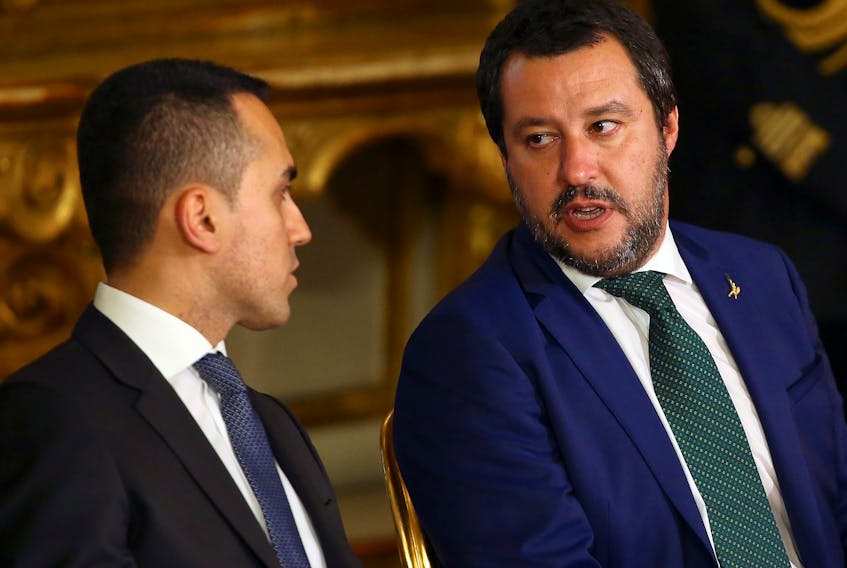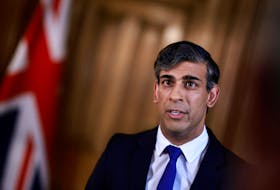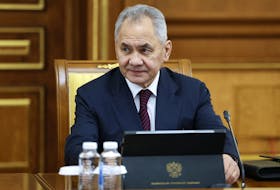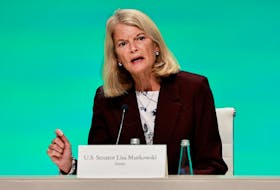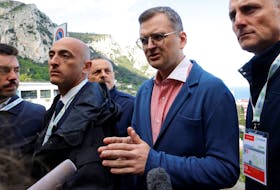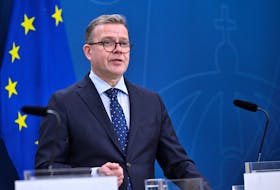By Gavin Jones and Angelo Amante
ROME (Reuters) - Italy's ruling parties intend to relaunch their coalition after next week's European elections, sources from both parties say, but it may not be easy after attacking each other for weeks during a bitter campaign.
Tensions between the anti-establishment 5-Star Movement and the right-wing League were expected ahead of the May 26 ballot, as the traditional rivals which formed a government last June compete with each other for votes and coalition dominance.
But the intensity of hostilities has taken observers by surprise, fueled speculation about a government collapse and upset financial markets which fear fresh political uncertainty in the euro zone's third-largest economy.
5-Star leader Luigi Di Maio and League chief Matteo Salvini, previously known and even mocked for their cosy relationship, have sparred daily on a raft of issues including law-and-order, corruption, immigration and public finances.
Salvini repeatedly attacks Rome's "incompetent" municipal government, run by 5-Star, while Di Maio called the League chief "irresponsible" after he suggested Italy should raise its already huge public debt to try to create jobs.
Each party accuses the other of disloyalty and plotting to sink the government, yet speaking off the record, senior sources from both say that even though relations have soured, they can be repaired after the vote.
"For politicians elections have the same function as gates do between dogs: they bark furiously at each other but when you open the gate they just smell each others' bottoms and it all ends there," said a prominent League lawmaker.
Another League official dismissed reports Salvini could trigger early elections to run in alliance with his traditional partner, former Prime Minister Silvio Berlusconi. "We certainly don't want to re-propose solutions from the past," he said.
A 5-Star source said much of the coalition infighting was pre-election "theatrics" and it was hard to see any alternative to a 5-Star/League government.
Nonetheless, it will not be easy to resume government activity which has virtually stopped ahead of the election, and there are plenty of hurdles ahead.
"The problem is that nearly everything is improvised, there is no planning beyond a few weeks," lamented a 5-Star member of government.
5-STAR RISK
Much will depend on the election result. Recent polls suggest the League will be clearly the largest party, leap-frogging 5-Star, which got almost twice as many votes in March 2018's general election.
Most surveys before a polling blackout began last week suggested the League would win slightly more than 30% of the vote, about 10 points ahead of 5-Star. But the gap had narrowed over the previous fortnight.
Probably the most dangerous outcome for government stability would be a debacle for 5-Star, which could fuel internal opposition to Di Maio.
"If we get much below 20% a lot of people in the party will say our alliance with the League is destroying us and we should return to opposition to regroup," a third 5-Star source said.
An early flashpoint for the government could come on May 30, just a few days after the election, when a Genoa court will issue a verdict on Edoardo Rixi, a deputy transport minister from the League who is accused of stealing public funds.
Another League junior minister, Armando Siri, was sacked at 5-Star's insistence earlier this month after he was put under investigation for corruption, worsening relations between them.
Salvini has said he would not use a strong showing at the election to push for greater clout for his party in the cabinet, yet key jobs are up for grabs and he and Di Maio may struggle to find mutually acceptable candidates.
The most important will be Italy's appointee to the new European Commission. Salvini has said he wants someone in a weighty economic role and is sure to push for a figure close to the League if he comes out top at the election.
The leaders will also need to find a new European Affairs minister to replace economist Paolo Savona, who quit in February to head market watchdog Consob. Since then, Prime Minister Giuseppe Conte has been doing the job on a temporary basis.
On the policy front, the thorniest issue will probably be the League's insistence on greater powers for the northern regions of Lombardy and Veneto, two League strongholds where referendums on local autonomy were held and won in 2017.
The League accuses 5-Star of dragging its feet in respecting the referendum results, and two League officials said if this continues after the election it is the one issue over which the government could fall.
The 5-Star Movement is strongest in Italy's poorer south, and it fears that giving northern regions greater autonomy over areas such as infrastructure and education will erode its support and widen an already-gaping north-south divide.
(Additional reporting by Giselda Vagnoni, Writing by Gavin Jones, Editing by Catherine Evans)

